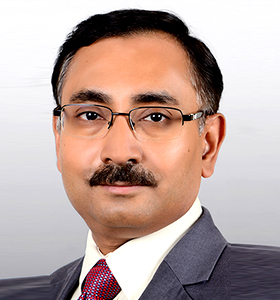While patient-centricity is not a new idea, decentralized clinical trials (DCTs) are a recent evolution of medical research design that revolves around a patient-centric approach. DCTs are a new research methodology that enfolds clinical trial processes and formats around participants’ circumstances, preferences and characteristics rather than the other way around. They represent a gradual shift away from a trial methodology that requires compliance with rigid processes, such as visit to research sites on a regular basis for evaluation of clinical parameters by the Investigator. DCTs have been fuelled by advancements in digital healthcare technology. Increasing internet and smartphone penetration coupled with advancement in biomedical technologies have augmented digital healthcare in India and across the globe. Patient Centricity has been recognized as the biggest benefit of a decentralized study. With increasing internet demand in rural India, DCTs can lead the way for participation of rural patients in clinical trials in future.
However there are a few concerns which need to be addressed for successful implementation of DCT in India. There is no regulatory framework on DCT implementation and there is a lack of expertise for ethical review and approval of digital tools. To mitigate our reliance on global providers, we need to have more home grown cost effective DCT solutions. Risks to participants’ privacy and confidentiality involving both data and physical privacy need to be addressed. The possibility of imposition of new burdens on research subjects and caregivers due to technology needs and smaller research teams also need to be assessed.
Additionally, in this era of healthcare digitalization, the strong overlap between digital health and Real-World Evidence (RWE), provides an opportunity for generation of RWE data from medical data that is being generated as part of standard clinical practice. There is an Increasing role of RWE in regulatory decision-making on drug effectiveness globally. Between 1995-97, 19.4% of USFDA approvals came from one controlled trial plus one RWE study. Between 2015-2017, the figure jumped to 47%. EMA has also joined a regulatory coalition in calling for RWE to be integrated in regulatory decisions.
In India, issues like low compliance to prescribed treatments, lack of regular follow ups with physician, availability of multiple generic versions of drugs, inadequate documentation of medical notes, lack of digitalization of medical information at many hospitals across the country need to be addressed for successful implementation of RWE study and generation of credible real world data.
Additionally, a structured framework from the regulatory authority in India in this regard will boost generation of much needed RWE data on Indian population, which can be used for regulatory decisions on new drug authorizations, repurposing of existing drugs etc.
Profile of Anirban Roy Chowdhury, Associate Vice President, Sun Pharma

Clinical Research Professional with 24 years of experience in the pharmaceutical industry, academia and the Govt. of India
Started his career as a CRA in AstraZeneca India
Served in senior leadership capacity at MSD, Bharat Serums and Vaccines Ltd and Translational Health Science & Technology Institute under Ministry of Science & Technology, Government of India
He is the Treasurer, Indian Society for Clinical Research, a not for profit professional association of clinical researchers
He is Adjunct Visiting Faculty at Manipal College of Pharmaceutical Sciences
He has done his Masters in Pharmacy with specialization in Pharmacology from Manipal College of Pharmaceutical Sciences and Executive Business Management Program from IIM, Lucknow